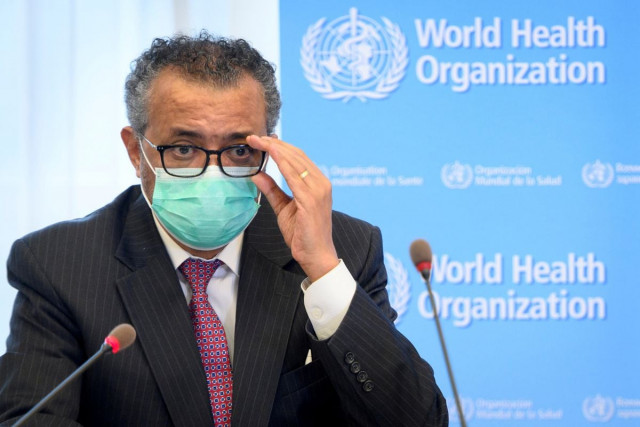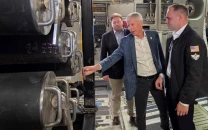WHO welcomes China's change in Covid strategy
Official hails Chinese authorities for ‘balancing control measures with the lives of communities who have suffered’

The World Health Organisation said on Friday it was pleased that China was now loosening its Covid-19 restrictions, in the wake of nationwide protests over Beijing's hardline pandemic response.
Discontent spilled onto the streets last weekend and expanded into calls for more political freedom, in widespread demonstrations not seen in decades.
Cities across China further unwound Covid restrictions on Friday, loosening testing and quarantine rules.
"We're pleased to learn that the Chinese authorities are adjusting their current strategies," balancing control measures with the lives of communities who have "suffered," WHO emergencies director Michael Ryan told a press conference.
"We hope this progresses and we see that coherent, calibrated strategy emerge that balances the control of the virus with the lives, livelihoods, wellbeing and human rights of the people of China."
Ryan said there were "natural frustrations" around the world as people have had their lives turned upside-down by the pandemic.
"It's really important that governments listen to their people when people are in pain. We really want to see that adjustment happen and accelerate," he said.
Also read: China gradually relaxes COVID restrictions after week of unrest
As for Covid-19 vaccination in China, Ryan said the UN health agency was pleased to see that take-up rates were improving.
The WHO has given its Emergency Use Listing green light to nine Covid-19 vaccines and variations, including three produced by China: those of Sinovac, Sinopharm and CanSinoBIO.
However, those three do not use mRNA technology, as deployed in the Pfizer-BioNTech and Moderna jabs.
Ryan said mRNA vaccines produced "very effective" immunity against the virus, and some countries that did not use such jabs in their primary vaccination course were now using them as boosters to enhance protection.
"I know the Chinese authorities were looking at developing their own mRNA vaccines, and I don't think there's any restriction on China accessing those.
"Certainly, it's a very solid option for a country to target boosters using other vaccines that may provide a better breadth, depth and length of protection."


















COMMENTS
Comments are moderated and generally will be posted if they are on-topic and not abusive.
For more information, please see our Comments FAQ